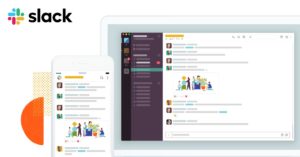Machine Learning Stroke Identification with David Golan
Podcast: Play in new window | Download
Subscribe: RSS


When a patient comes into the hospital with stroke symptoms, the hospital will give that patient a CAT scan, a 3-dimensional imaging of the patient’s brain. The CAT scan needs to be examined by a radiologist, and the radiologist will decide whether to refer the patient to an interventionist–a surgeon who can perform an operation to lower the risk of long-term damage to the patient’s brain function.
After getting the CAT scan, the patient might wait for hours before a radiologist has a chance to look at the scan. In that period of time, the patient’s brain function might be rapidly degrading. To speed up this workflow, a company called Viz.ai built a machine learning model that can recognize whether a patient is at high risk of stroke consequences or not.
Many people have predicted that radiologists will be automated away by machine learning in the coming years. This episode presents a much more realistic perspective: first of all, we don’t have nearly enough radiologists, so if we can create automated radiologists that would be a very good thing; second of all, even in this workflow with a cutting-edge machine learning radiologist, you still need the human radiologist in the loop.
David Golan is the CTO at Viz.ai, and in today’s show he explains why he is working on a system for automated stroke identification, and the engineering challenges in building that system.
Transcript
Transcript provided by We Edit Podcasts. Software Engineering Daily listeners can go to weeditpodcasts.com/sed to get 20% off the first two months of audio editing and transcription services. Thanks to We Edit Podcasts for partnering with SE Daily. Please click here to view this show’s transcript.
Sponsors

Video is complex, and figuring out how to optimize the delivery of video is not easy–especially since there is both mobile and desktop, and mobile users might not have as much bandwidth as desktop users. Check out mux.com — after you’ve signed up, mention Software Engineering Daily for a $50 credit. And if you are an engineer who is looking for work, you can also apply for a job at mux.com.

With Pluralsight’s learning platform, you can level up your skills in cutting edge tech like machine learning, cloud infrastructure, mobile development, DevOps and blockchain. Get access to three options: the 10-day free trial, 50% off your first month, and $50 off a yearly subscription at Pluralsight.com/sedaily.

Citus is worry-free Postgres that is built to scale out. Made for SaaS and enterprises, Citus is an extension to Postgres that transforms Postgres into a distributed database. Whether you need to scale out a multi-tenant app—or are building real-time analytics dashboards that require sub-second responses—Citus makes it simple to shard Postgres. Go to citusdata.com/sedaily to learn more about how Citus can scale your Postgres database.

Airbrake alerts us in real-time and gives us the the diagnostics that let us identify and fix the problem in minutes instead of hours. Check out airbrake.io/sedaily to start monitoring your apps free for 30 days. Setup takes only a few minutes, no complicated configuration needed.



















